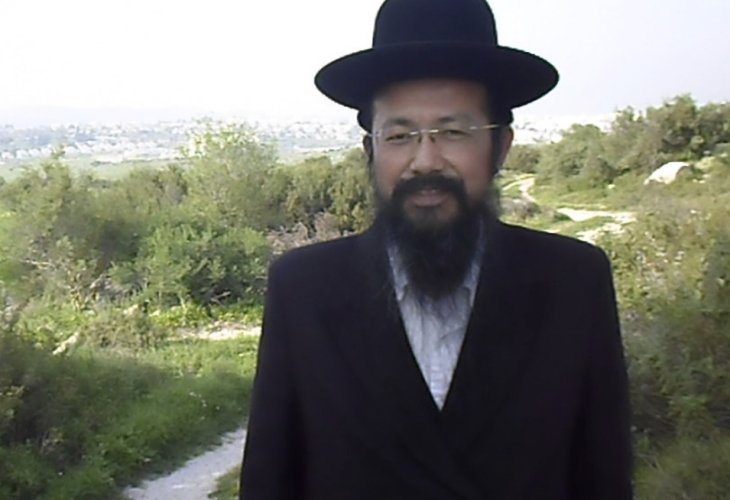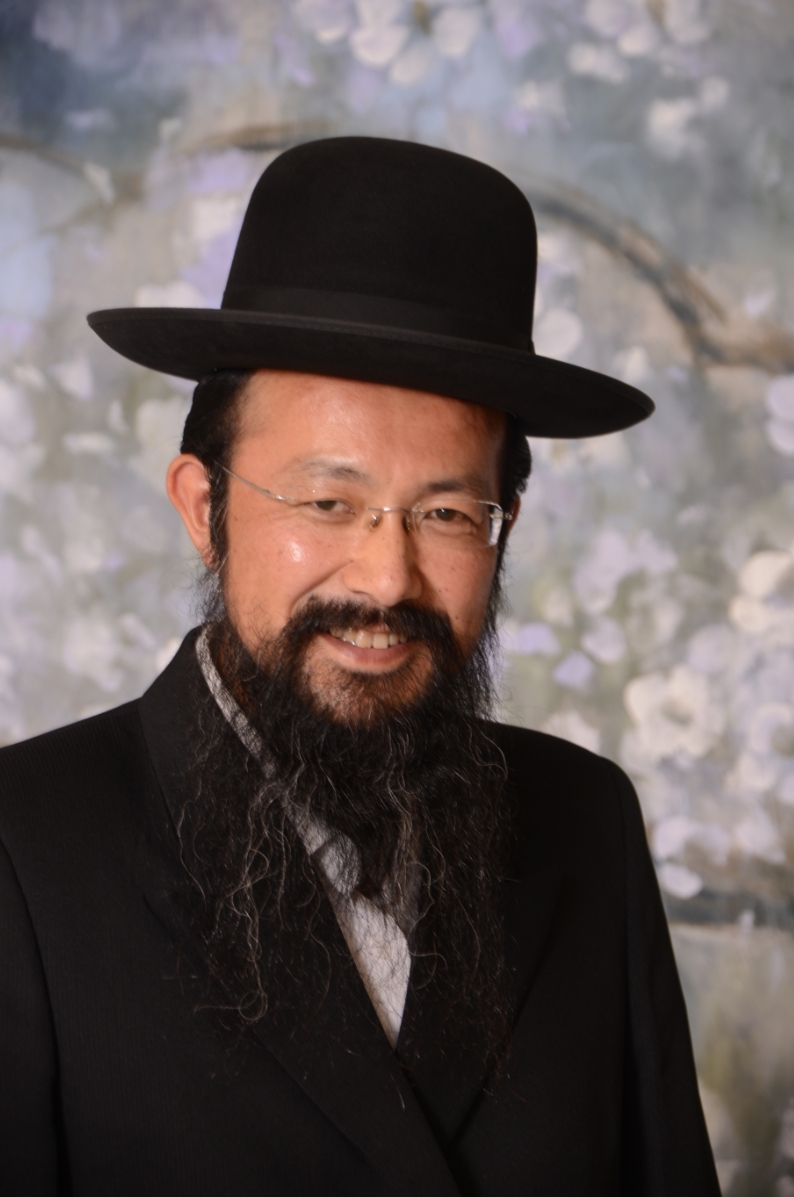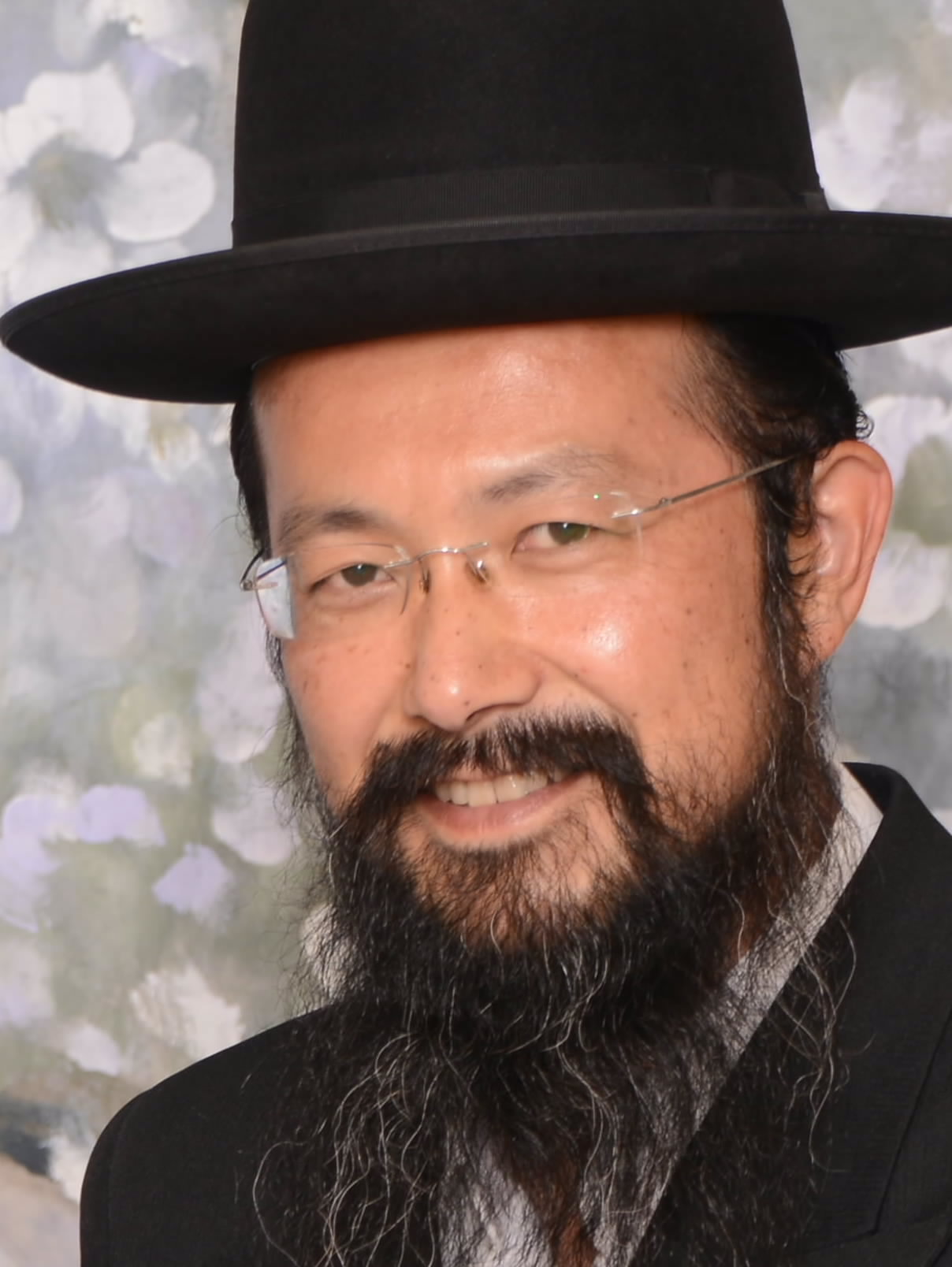Stories of Righteous Converts: "Initially, We Weren't Accepted; It Wasn't Easy"
On the eve of Shavuot, we had a conversation with two righteous converts, Rabbi Gilad Kinan and Rabbi Natan Gamadze. Both have complex life stories about forging a new path full of challenges, yet both share one insight: "Love the convert." A journey among nations, states, people, and emotions.
 Rabbi Gilad Kinan
Rabbi Gilad KinanRegarding Rabbi Natan Gamadze, there seem to be few who haven't heard of him. The prince who left the royal palace in Africa and returned to Judaism has already managed to fill entire halls, both in Israel and around the world, captivating audiences with his awe-inspiring story of walking alone on a fascinating journey.
However, in this interview, I chose to talk to him about the internal points of the heart, those that aren't publicly discussed and aren't a topic in general lectures. I spoke with him about his personal feelings as a black convert standing alone against a small nation entrusted with accepting the different and other.
Did his answers satisfy my personal innocence? Apparently not. I realized that we, the chosen people, still have much to learn and change concerning the timeless commandment to "Love the convert."
Many also know Rabbi Gilad Kinan. He too, in his years as a Jew, has spread his teachings and shared his complex life story. With him, I chose to focus on internal feelings, personal sensations, and everything that hasn't been said or told—until now, until this very moment.
He Did Not Make Me a Gentile
"I am Gilad Kinan, son of Avraham Avinu, peace be upon him," begins Rabbi Kinan in our conversation. "I was privileged to convert about 28 years ago, coming from faraway Japan to the Land of Israel and the Jewish people.
"How happy I am every day," he adds. "Even after so many years, each morning when I bless the blessing 'He did not make me a gentile,' joy renews within me."
Rabbi Kinan doesn't stop with these words, and without planning, he begins a sweet melody that to my ears sounds like an enchanting sound of bells. He sings and dances, joyously exclaiming almost with his very soul: "He did not make me a gentile, He did not make me a gentile..."

I take advantage of the small pause in our emotional conversation to ask him about the internal feeling in this blessing, and whether he blesses it with the name and kingdom. "I follow the method of the Chida and the opinion of the Ben Ish Chai and bless without name and kingdom," he reveals, "but nothing prevents me from the vast joy in these marvelous words. 'He did not make me a gentile'" he exclaims again in my ears. And I, too, am moved with him.
Conversely, Rabbi Natan Gamadze tells me that since he follows the method of the Mishnah Berurah, he is forced to skip this blessing every morning. "But it doesn't make me feel less than anyone else," he clarifies.
Love the Convert
"Every year before Shavuot, I receive requests to tell my life story," says Rabbi Kinan. "I think the reason is that the convert is humble and modest; he has no family, no friends, nothing to hold onto or be proud of. Similarly, a Jew should feel humble and modest before receiving the Torah anew, just like Moshe Rabbeinu, who was the humblest of all men, and just like Mount Sinai, the lowest of all mountains."
When Rabbi Kinan describes himself as the humble and modest convert, he doesn't bother to hide his origins or his different appearance. "I came from Japan, I look Japanese, and this constantly attracts looks and questions wherever I go, and in every place I am."

"Did they not welcome you kindly because of your facial features?" I ask hesitantly, praying that the righteous convert before me will dismiss the notion and tell me about our wonderful and special people free from all racism and hatred. But Rabbi Kinan is silent, pondering whether to share his feelings, and finally decides to open up, his voice softening: "I currently live in Beit Shemesh, having moved among various sectors. Today I belong to the 'Breslov' community; however, I can painfully say—they did not accept me nicely. They always looked at me in a strange way; my different facial features led to very unpleasant looks on the street. They looked at me as if I were an odd bird, the feeling was terrible for me, it was tough.
"Today, many years later," he adds, "I've learned to channel these feelings positively. I've learned to take my different character to other paths. Not infrequently, secular Jews approach me on the street and reveal that my Japanese appearance presented as a complete Jew inspires them to connect to their people. 'If you wear a kippah and tzitzit, there's no reason why we shouldn't,' they say, and this understanding makes me realize this is my role, and naturally, I am happy with my different features."
The conversation with Rabbi Natan Gamadze also touches upon this unfortunate point. "As a convert and even more so as a black convert, I went through not easy and very challenging days initially. I studied in a yeshiva in Jerusalem, and when I would leave the yeshiva, I would hear people calling me names like 'kushi'. I would cry tears, wondering why I, who left my people to become Jewish, am not respectfully received here. It broke my heart time and again, but thank Hashem, I was not broken and stayed strong in my decision."
For My Father and Mother Have Forsaken Me
Rabbi Gilad Kinan was born in Japan as the firstborn to a typical local family. "The firstborn in Japanese culture," he explains, "must continue the family tradition. Therefore, my step towards Judaism was seven times harder."
Nevertheless, he says his family accepted his step with understanding and empathy, and his parents even attended his Jewish wedding held according to the laws of Moses and Israel—in Jerusalem.
For Rabbi Natan Gamadze, the story is much more complex. "I grew up as a prince in my father's palace, who ruled one of the tribes in South Africa. My father was a Christian pastor who considered himself a man of God, claiming God spoke to him and gave him instructions. He also claimed to know things before they happened.
"My parents cut all ties with me because of the step I took and didn't speak to me for many years. Only after 16 years, when I was invited to give a lecture in South Africa about my journey back to Judaism, did I receive a request from my parents to meet them at the airport.
"I was excited like a small child, arrived at the place, and suddenly saw my mother. I was in terrible shock. When I left South Africa, she was young, and now I meet an old grandmother. I cried like I never cried in my life; I couldn't contain these intense and painful feelings of longing. I felt, differently yet similarly, like the righteous Yosef meeting his father in Goshen after so many years of separation.
"Although the connection was renewed, we do not speak. My family considers my actions a kind of threat to the Christian religion."
One People, One Language
The journey to Judaism, it turns out, is filled with many obstacles, but it's interesting to note that both Rabbi Gamadze and Rabbi Kinan found it through learning different languages.
"I was always attracted to truth," Rabbi Gamadze tells me. "I couldn't bear lies and intrigues. I came to Judaism quite by accident. I left South Africa to pursue a doctorate in the Hebrew language."
At this point, I interrupt the flow of the conversation and cautiously inquire what a black gentile from South Africa has to do with the Hebrew language, and Rabbi Gamadze reveals to me that he is fluent in no less than 13 different languages, including English, German, Italian, and French, besides other languages and dialects of the African people.
"I dream and think only in English and Hebrew," he chuckles. When I try to understand what this means, he responds that perhaps the Semitic language controlling him teaches something about the Jewish inner essence of his soul.
While in Rome, the decision in his heart to convert was made, and he flew to Jerusalem to complete the process. The simple truth in Judaism captivated his heart and distanced him for a lifetime from his birthplace.
For Rabbi Gilad Kinan, the news about the Jewish religion came as a complete surprise. "I was always drawn to faith since believers seemed to me to be the most perfect people. The problem was that all the believers I encountered in Japan seemed odd and bizarre.
"When I was 20, I learned English at a private school and noticed that one of the teachers always ended his words with two repetitive words. I asked to clarify what he was whispering and why he needed to use these magical words, and then I discovered the Jewish faith. It turned out the teacher was a Jew from Israel who would occasionally use the phrases 'b'ezrat Hashem' and 'baruch Hashem', and I was captivated by his charm. Here stood before me a believer who wasn't an odd bird. Here was a clean and pure faith."
From this point on, Rabbi Kinan embarked on a long and fascinating journey until he eventually arrived in Israel and was privileged to convert according to the law.
A Jewish Soul in a Gentile Body
Now, being complete and kosher Jews, both Rabbi Kinan and Rabbi Gamadze speak the same language. They both understand that there is no difference between them and any other Jew, and the feeling of inferiority is far from them.
"I am Jewish in every fiber of my being," says Rabbi Gamadze. "I celebrate Jewish holidays just like anyone else whose ancestors left Egypt, and the Shabbat observance to me is like a spiritual taste of the World to Come.
"Moreover," he reveals. "Even if I sleep, I'll precisely feel in my soul when Shabbat enters and exits. I sense the feeling, it's an amazing divine gift."
Rabbi Kinan also shares similar feelings with me. "It's no coincidence that it's said a 'convert' who converted, not a 'gentile' who converted. My soul stood at Mount Sinai like the souls of all Jews; when I converted, it clarified retrospectively that I was never truly a gentile. I was born into such a family, but from the start, my soul was a Jewish soul."
"Initially," Rabbi Gamadze reveals, "I was 'angry' so to speak, with Hashem, not understanding why I wasn't born Jewish. I couldn't understand why my soul was born in a false place, why I was outside and not belonging to the truth.
"But gradually, I realized that my work is different from anyone else. Slowly, I felt how Hashem takes me from my low place and refines me. I felt the essence of the verse 'taking a nation from within a nation.' This was my personal Exodus, understanding that I was redeemed from these feelings."
Rabbi Kinan also addresses these issues. "I know it is written that converts are challenging to Israel, but that doesn't frighten me. There are many interpretations of this definition, but I learned that today I am Jewish, and we are all one body, both those born as such and those who made the whole journey here alone."
No Difficulty, Only Challenge
I attempt to determine whether they currently experience difficulties in the process of observing the commandments, and whether a convert's challenges resemble those of a returnee to faith who misses his past, but they gently laugh. Both have challenges like anyone else; everyone has falls and daily spiritual struggles, and like everyone else, they fall, rise, and strengthen daily in their journey to be complete Jews.
"You must not be alone in your falls," Rabbi Kinan encourages me. "A Jew must be connected his whole life to a tzadik, who will show him the way and help him rise from the dust during difficult times."
"The way to avoid falls," Rabbi Gamadze reveals to me, "is to strengthen oneself throughout the day with the idea of 'I constantly place Hashem before me.' When a person stands before the king, he cannot fall, he cannot sin."
I inquire to determine what is currently the most difficult for him to fulfill as a Jew. He thinks a lot about this question and admits it is difficult for him. Finally, he carefully selects his words and responds that the hardest part is being a 'light unto the nations.' "It is difficult for me to accept that I, the small, am considered a 'part of God above'; it's tremendously challenging."
"The commandment I find hardest to fulfill," Rabbi Gamadze lowers his voice, "is 'love your neighbor as yourself.' I think it is a sad symptom that will accompany me all my life due to the horrible experience I endured when I first started my journey in Judaism," he says, evoking in me terrible feelings of shame and regret.
Rabbi Kinan cannot in any way answer this question. "I don't know how to answer what is the hardest. It's hard for everyone. But how can one say commandments are hard? Shabbat, for example, is the most wonderful thing in the world, despite all the prohibitions it has. Shabbat is spiritual and physical joy, so how can one say the word difficulty?"
For Everything Exists by His Word
The excitement from observing the commandments hasn’t faded for Rabbi Kinan and Rabbi Gamadze, even many years later. "The first commandment I observed was laying tefillin," says Rabbi Gamadze. "I had time left after immersing in the mikveh and urgently ran to lay tefillin. The connection of the tefillin, along with the words 'I will betroth you to Me forever,' made me feel like a Jew; the feeling was that I had finally returned home. Since then, until today, I get excited anew every time I lay tefillin."
Rabbi Kinan can't recall what the first commandment he observed was, but he has a ready answer for my question about which commandment moves him the most. "Every time I bless 'for everything exists by His word,' I get immensely excited. Think about the words, think about their meaning; everything, everything, everything exists by the word of the Creator of the world, this recognition was missing in my life, and with every such blessing—it is fulfilled."
I reflect on the meaning, think about the empowering encounter I experienced with the righteous converts, and thank the Creator of the world, by whose word everything exists, for granting me the merit to be Jewish.

